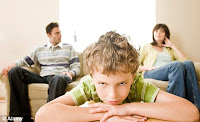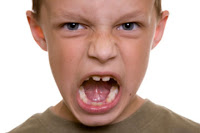Most kids argue with moms and dads and defy authority from time to time, especially when they are tired, hungry, or upset. Some of the behaviors associated with Oppositional Defiant Disorder also can arise in kids who are undergoing a transition, who are under stress, or who are in the midst of a crisis. This makes the behavioral symptoms of Oppositional Defiant Disorder sometimes difficult for moms and dads to distinguish from stress-related behaviors. Kids with Oppositional Defiant Disorder show an ongoing pattern of extreme negativity, hostility, and defiance that: • Is constant • Is disruptive to the family and the school • Is excessive compared with what is usual for the youngster’s age • Is usually directed toward an authority figure (mother or father, educators, the principal, the coach) • Lasts at least 6 months The following behavioral symptoms are associated with Oppositional Defiant Disorder: • Actively refusing to comply with requests and rules



